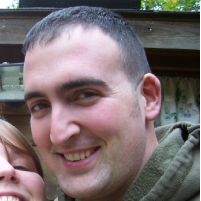Why are Americans Arrested for Videotaping Police in Public Places?
Friday, February 10, 2012
 Mario Masic
Mario Masic
Recording police officers while making arrests has resulted in numerous other arrests … of those daring to tape such actions.
In October 2007 attorney Simon Glik was arrested by Boston police after he used his cell phone to capture the arrest of young man who was punched by an officer. Claiming the audio recording of the arrest violated the law, police took Glik to jail. On January 5 of this year—more than four years later—the Boston Police Department finally sent Glik a letter admitting that its officers are acted unlawfully when they arrested him.
In Rochester, New York, last year, Emily Good was arrested after videotaping—from her own front yard—the arrest of a man at a traffic stop. The arresting officer, Mario Masic, accused Good of being “anti-police” after she refused to stop recording the arrest. The charge against Good was later dropped.
In Illinois, a 1960s-era law is coming under scrutiny as Chicago prepares to host the G8 and NATO summits, which are expected to attract large numbers of protesters and journalists. As currently written, the state law allows police to arrest any citizen on felony charges for recording the conversations of police without their consent.
The ACLU argues that the Illinois Eavesdropping Act is out of date and over the top.
One state lawmaker, Democratic Representative Elaine Nekritz, has proposed an amendment that would allow for the recording of police on duty in public places.
-Noel Brinkerhoff
To Learn More:
Boston Police Admit Arrest for Videotaping Was Wrong (by Andrea Papagianis, Reporters Committee for Freedom of the Press)
Your Right to Record (by Jonathan Turley, Los Angeles Times)
Christopher Sharp v. Baltimore City Police Department (U.S. District Court, Maryland) (pdf)
Police Arrest Bystanders Who Use Phones to Video Arrests of Others (by Noel Brinkerhoff, AllGov)
- Top Stories
- Unusual News
- Where is the Money Going?
- Controversies
- U.S. and the World
- Appointments and Resignations
- Latest News
- Can Biden Murder Trump and Get Away With it?
- Electoral Advice for the Democratic and Republican Parties
- U.S. Ambassador to Greece: Who is George Tsunis?
- Henry Kissinger: A Pre-Obituary
- U.S. Ambassador to Belize: Who is Michelle Kwan?






Comments